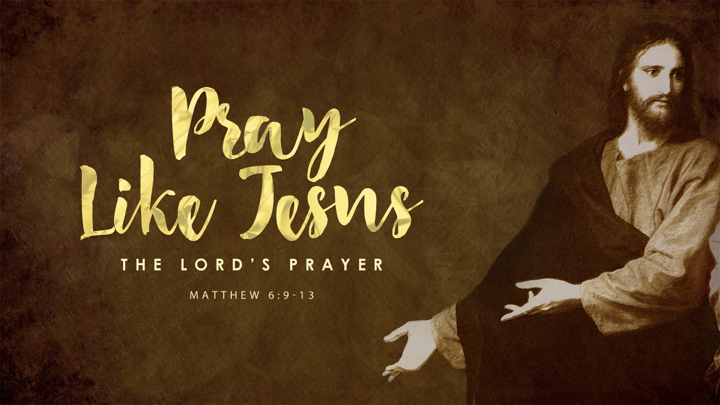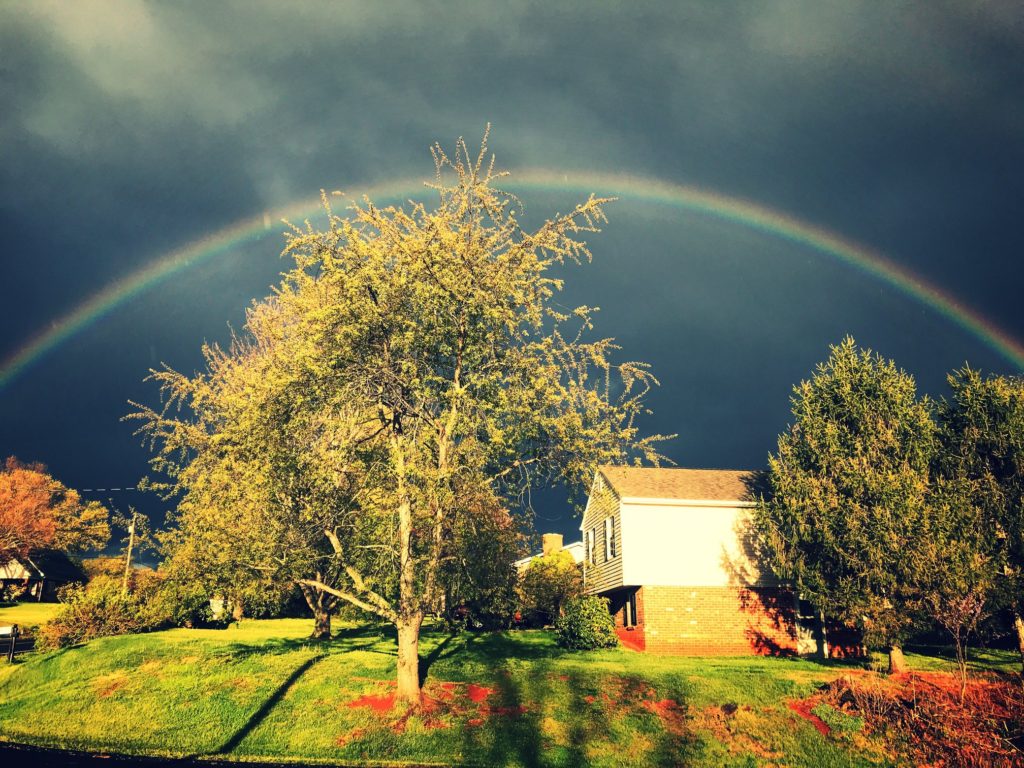
Hope Springs Eternal

And Elijah said to Ahab, “Go, eat and drink, for there is the sound of a heavy rain.” So Ahab went off to eat and drink, but Elijah climbed to the top of Carmel, bent down to the ground and put his face between his knees.“Go and look toward the sea,” he told his servant. And he went up and looked.“There is nothing there,” he said.Seven times Elijah said, “Go back.”The seventh time the servant reported, “A cloud as small as a man’s hand is rising from the sea.”So Elijah said, “Go and tell Ahab, ‘Hitch up your chariot and go down before the rain stops you.’” (1 Kings 18:41–44)
Because of the LORD’S great love we are not consumed, for his compassions never fail. They are new every morning; great is your faithfulness. I say to myself, “The LORD is my portion; therefore I will wait for him.” The LORD is good to those whose hope is in him, to the one who seeks him; it is good to wait quietly for the salvation of the LORD. (Lam. 3:22–26)
Read more...

Pastor’s Corner – February 2019

If you give a man a fish he is hungry again in an hour. If you teach him to catch a fish you do him a good turn. — English proverbBut Jesus answered, “It is written, “‘Man shall not live by bread alone, but by every word that comes from the mouth of God.’” — Matthew 4:4“All Scripture is God-breathed and is useful for teaching, rebuking, correcting and training in righteousness, so that the servant of God may be thoroughly equipped for every good work.” — 2 Timothy 3:16–17
Learning to Study the Scriptures
Getting SOAPy
Scripture
Observation
Application
Prayer
Read more...

Pastor’s Corner – January 2019

Rather train yourself for godliness; for while bodily training is of some value, godliness is of value in every way, as it holds promise for the present life and also for the life to come. (1 Tim. 4:7–8 ESV)
What’s Your Resolution?
Lord, Teach Us To Pray
Praying Like Jesus
Read more...

Pastor’s Corner – December 2018

Consumed by Consuming
A Prescription for A Better Way
“I have learned to be content whatever the circumstances. I know what it is to be in need, and I know what it is to have plenty. I have learned the secret of being content in any and every situation, whether well fed or hungry, whether living in plenty or in want. I can do all this through him who gives me strength.” (Phil. 4:11–13)
Read more...

Pastor’s Corner – November 2018

The End of the Year Is Upon Us
The Spiritual Celebration of The King
The seventh angel sounded his trumpet, and there were loud voices in heaven, which said: “The kingdom of the world has become the kingdom of our Lord and of his Christ, and he will reign for ever and ever.” (Revelation 11:15)
A Secular Season of Gratitude
“Let the word of Christ dwell in you richly as you teach and admonish one another with all wisdom, and as you sing psalms, hymns and spiritual songs with gratitude in your hearts to God.” (Colossians 3:16)
Read more...

Andrew Brunson Prayer Update

Read more...

Pastor’s Corner – October 2018

What’s in a logo?
In the Beginning was the Word
In the beginning was the Word, and the Word was with God, and the Word was God. He was in the beginning with God. All things were made through him, and without him was not any thing made that was made. In him was life, and the life was the light of men. — John 1:1–4
The Spirit Gives Life
It is the Spirit who gives life; the flesh is no help at all. The words that I have spoken to you are spirit and life. — John 6:63
Read more...

Pastor’s Corner – August 2018

One Year Ago…
Do you remember a year ago? You were wondering just what this new pastor you’d called would be like; and we were wondering about this new congregation and community we’d been called to serve. There were so many unknowns and questions for us all. But just behind all of that uncertainty was our God, who holds all of us in His hands, who knows the future as certainly as the past. God has shown all of us that He knows exactly what He is doing. Without a doubt, it has been a wonderful year. One of the things I enjoyed most at the EPC General Assembly in June was being able to brag about the wonderful congregation I’ve been blessed to serve as pastor for the past year. As I told several friends and mentors, I couldn’t imagine a better congregation to serve for my first solo pastorate. It’s hard to find the words to express how thankful I am for how you’ve welcomed and loved my family over the past year. The picture to the right was taken the day we moved into our new home.
…But There’s More To Come!
As great as the past year has been, I can’t wait to see all that God has in store for the year(s!) to come. The various ministries of the church and the Session are hard at work prayerfully discerning how God is already at work in and around us, and how He is inviting us to join Him in that work. Plans are being laid for some pretty cool things in Christian Education, Missions & Outreach, Worship and Fellowship over the months to come. The best part is that you get a sneak peek at what’s ahead on Rally Day, coming up Sunday, August 26. How is God inviting you to continue growing as a disciple of Jesus Christ and what opportunities is He providing for you to serve as Jesus’ hands and feet? Plan to join us for Rally Day and you just might find out. We look forward to seeing you there!
Blessings,
Rev. David Garrison
Read more...

Pastor’s Corner – June 2018

“Ordinary” Time
“Where’d Pastor David go?”
Rev. David Garrison
Read more...

Pastor’s Corner – May 2018

After the Storm
Storms are used in fascinating ways in Scripture. Take a look at Genesis 6-9 (Noah’s flood), Psalm 18, and Matthew 8:23-27 (Jesus calms the storm) for a couple of good examples. But my favorite “storm story” is in 1 Kings 19. Elijah has just won a powerful victory over the prophets of Ba’al, but ends up fleeing for his life as Jezebel and Ahab seek vengeance. He hides in a cave on Mount Horeb (also known as Mount Sinai), and God tells him, Go out and stand on the mountain in the presence of the LORD, for the LORD is about to pass by.” What happens next is incredible:
Then a great and powerful wind tore the mountains apart and shattered the rocks before the LORD, but the LORD was not in the wind. After the wind there was an earthquake, but the LORD was not in the earthquake. After the earthquake came a fire, but the LORD was not in the fire. And after the fire came a gentle whisper. When Elijah heard it, he pulled his cloak over his face and went out and stood at the mouth of the cave. (1 Kings 19:11–13)
I think most of us would assume that God would’ve been in the storm, the earthquake or the fire. But He wasn’t. God was in the stillness and quiet that came after the storm. The same is true with the story of the flood – the rainbow came after the waters receded. And when Jesus calmed the waters? That’s when the disciples fell down in worship.
“What are you doing here?”
That’s the question God asked Elijah in the silence after the storm. Through your tireless acts of love and support, God’s presence after the storm has been made real. I have been overwhelmed with the incredible response of our community in the weeks that have followed the tornado in Elon and Lynchburg. You have answered God’s question to Elijah with your actions – by faithfully living what Paul calls us to in Galatians 5: “Serve one another in love. The entire law is summed up in a single command: ‘Love your neighbor as yourself.’” (Gal 5:13–14) The cleanup work for those affected has just begun and will continue long after the tornado has left the news cycle. May we continue to be God’s hands and feet as we pray without ceasing, give as we are able, and serve as the opportunity presents itself. You can find some helpful suggestions and guides on our website at www.npcmh.com/blog.
Blessings,
Rev. David Garrison
Read more...
